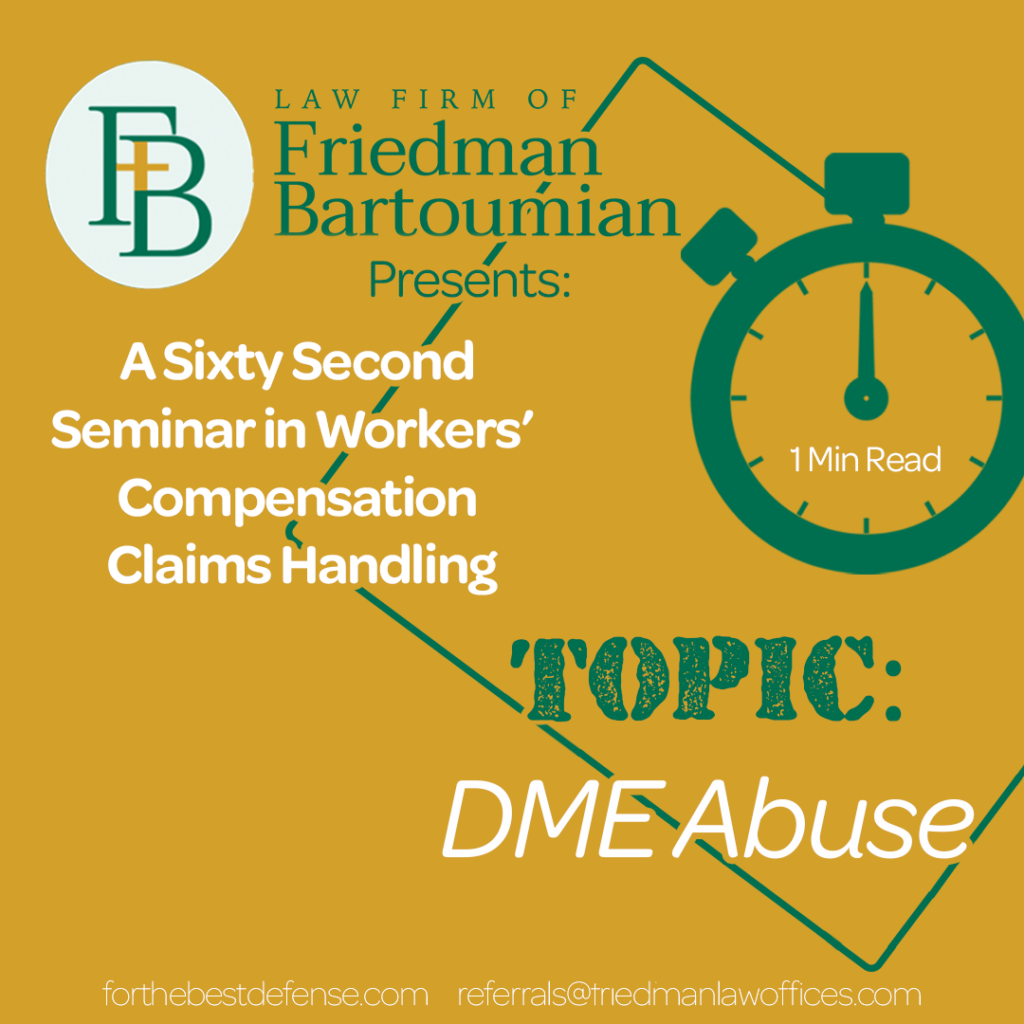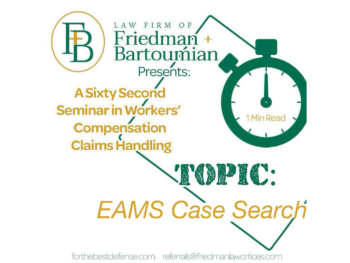
It should not come as a surprise to anyone in our industry that abuse is rampant in the workers’ compensation system. Abuse is encountered everywhere, even when dealing with durable medical equipment. In today’s blog we will expose an element of DME abuse that most claims professionals are unaware of.
Let’s presume a worker injured his neck in an industrial accident, requiring surgery. Upon discharge from the hospital the claims administrator receives a bill from a medical supply store who provided the injured worker with a three-month wheelchair rental for $532 and a $1,200 portable bio-cervical unit for take-home use. A few weeks later a second bill from the same supplier arrives for a $420 TNS device and a $950 bio-thermal unit for the cervical injury. The assigned claims rep processes payment as the adjuster acknowledges that medical supplies for the cervical region of the back are associated with neck surgery. Did you notice what just happened? Sadly, the adjuster has become the latest victim of workers’ compensation abuse. For our readers who haven’t quite yet spotted the abuse, ask yourself the following question, “What exactly are bio-cervical and bio-thermal units?” These items are nothing more than “made-up” names designed to fool a claims adjuster. All the supplier did was take an everyday product and change its name. A bio-cervical unit is nothing more than a dog-bone pillow that can be purchased on-line for only $15.99, a far cry from the $1,200 paid by the adjuster. As for a bio-thermal unit, that is nothing more than an everyday heating pad that sells on-line for $18.98, nowhere close to the $950 that was paid. The lesson to be learned here is to never pay for something when you don’t know what it is.
It may upset some of our readers to learn that the medical supplier was never prosecuted for workers’ compensation fraud because a store is allowed to charge whatever it wants. Customers are then free to either purchase the item or walk away. By way of example, suppose a customer purchased a pencil from stationary store for $75. Just because a pencil sold for $75 does not mean the store committed fraud, especially when a customer agreed to the price. Similarly, in workers’ compensation a claims adjuster is free to research a product and file an objection if the price is out of line. When a claims rep fails to perform due diligence and ends up paying for an item without first researching it, that action in itself doesn’t mean the medical supplier committed fraud. Although the adjuster may have been deceived by the product name, such re-labeling is not illegal. Incidentally, the story we just told you is true where a medical supply company was paid more than $2.5 million by various claims administrators before one adjuster finally inquired into what a bio-cervical unit was and demanded to see a photograph of it.
As previously mentioned, the lesson to be learned here is to never pay for something when you don’t know what it is. We at F+B hope our blog today has alerted our readers to be watchful of abuse in workers’ comp. Just for fun, here is a test. Would $500 be a reasonable price for a bio-digital thermal indicator? In case you haven’t figured it out yet, a bio-digital thermal indicator is nothing more than a thermometer.


 Rx Refills: A 60-Second Seminar in Workers’ Compensation Claims Handling
Rx Refills: A 60-Second Seminar in Workers’ Compensation Claims Handling
Leave a Reply